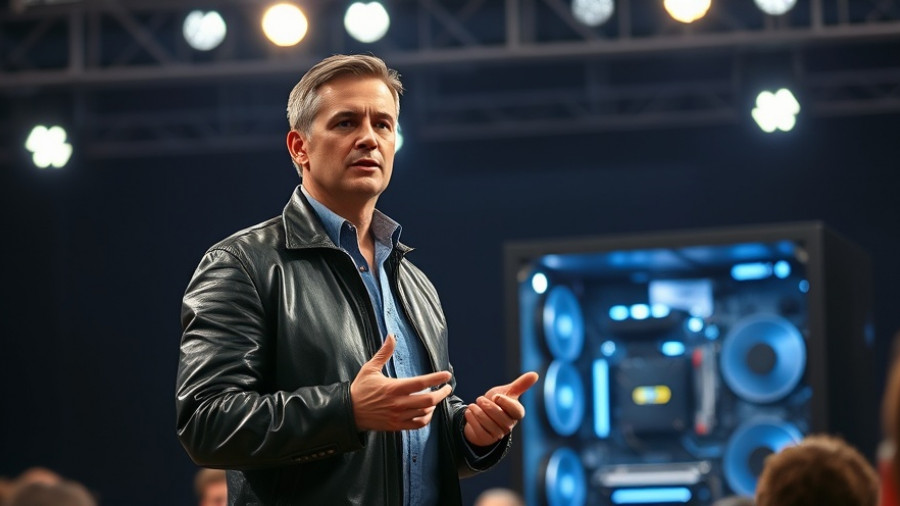
The AI Revolution is Just Beginning: Key Insights from Nvidia's CEO
Nvidia CEO Jensen Huang recently shed light on the future of artificial intelligence during a tech conference, asserting that the AI boom is far from over. For many AI enthusiasts, this statement is resonant, as Nvidia has become synonymous with the rapid advancement of AI technologies. While some skeptics might question the sustainability of this boom, Huang’s confidence suggests a forthcoming wave of innovations that promises to reshape industries and enhance our daily lives.
Historical Context: The Roots of the AI Boom
The journey of AI can be traced back to the mid-20th century, but it has gained unprecedented momentum over the past decade. With advances in computational power courtesy of companies like Nvidia, and the accessibility of vast data sets, the AI landscape is now a fertile ground for experimentation and application. NVIDIA's graphic processing units (GPUs) have been pivotal in deep learning processes, allowing AI algorithms to analyze and learn from complex data at incomprehensible speeds.
The Current Landscape: Why AI is Thriving
Central to Huang's assertion is the fact that AI technology is being continually woven into the fabric of various sectors—from healthcare to finance. The recent surge in AI applications has led major corporations like Amazon and Google to invest heavily in their AI infrastructures, establishing a competitive market ripe for innovation. AI-powered tools are enhancing customer experiences, streamlining operations, and opening new revenue streams. This sustains the momentum Huang refers to, as companies race to adopt AI strategies.
Counterarguments: The Skeptics Speak
While enthusiasm for AI growth is palpable, it's essential to recognize the challenges that come with it. Critics, including some regulators and economists, argue that AI can exacerbate inequalities and raise ethical concerns. The potential for job displacement due to automation looms large, creating a sense of urgency for policy discussions about AI's societal impact. Huang acknowledges these concerns, but believes that the benefits will outweigh the drawbacks as society adapts.
Future Predictions: The Next Frontier for AI
Looking ahead, Huang predicts that advancements in AI will accelerate, particularly with the integration of AI in everyday technologies. Innovations in self-driving vehicles, AI-powered healthcare solutions, and advanced data analytics are just the tip of the iceberg. Huang posits that by the end of the decade, AI will not only be ubiquitous but will also redefine how humans interact with technology—creating a more seamless and intuitive experience.
Unique Value of Understanding AI Trends
For enthusiasts and businesses alike, staying abreast of these developments is crucial. Understanding the implications of AI technology can lead to strategic advantages, guiding investment decisions and shaping innovative approaches to problem-solving in various fields. Huang's testimony serves as a rallying cry for stakeholders to explore the emerging potential in AI.
Emotional Angle: The Human Experience with AI
The rise of AI evokes a mixture of excitement and apprehension among the public. As AI continues to become intertwined with our lives, it prompts questions about humanity's relationship with technology. Many wonder how AI will change the way we live, work, and relate to one another. Huang's optimistic outlook reassures enthusiasts that AI can maintain its relevance and efficacy without compromising our essential human qualities.
In conclusion, as we continue to navigate the evolving landscape of AI, keep an eye on industry leaders like Nvidia. Their insights can offer a glimpse into the future and guide us towards more informed decisions about technology's role in society. Engage with the discussion around the transformative potential of AI and consider how you can participate in this exciting journey.
 Add Row
Add Row  Add
Add 




Write A Comment